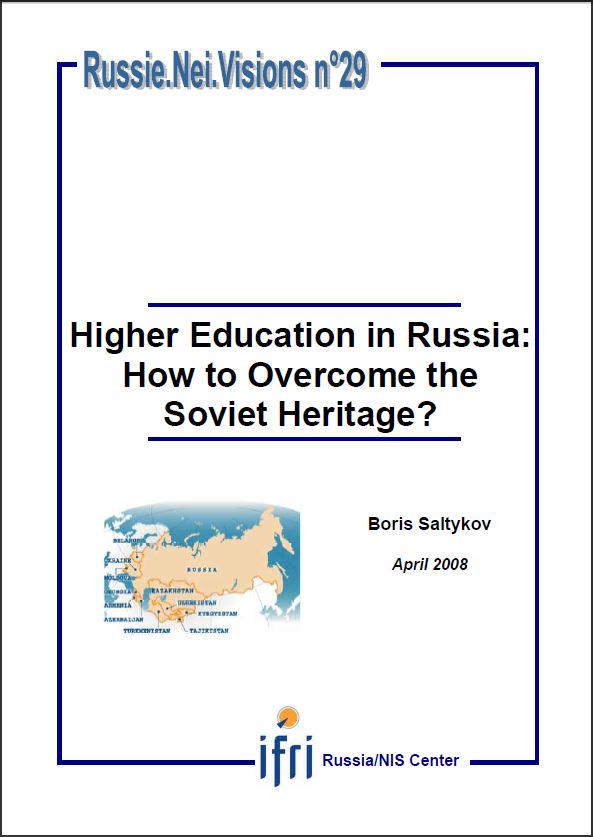Higher Education in Russia: How to Overcome the Soviet Heritage?

Russia's higher education (HE) reform, begun 15 years ago, was intended to provide a response to the challenges of the new post-industrial, high-tech economic development model. During the course of the reform, many of the negative features inherited from the Soviet period (ideologization, complete state-ownership of assets, excessive centralization of decision-making) were overcome. However, many characteristics of the Soviet system have turned out to be highly resilient, right up to today: the separation of science and education, the socio-humanitarian science sector remaining behind the natural and technical sciences, and the gap between the "elitist" and the "mass" segments. In the initial stages, the problems of reform were forced into the background, behind the much more acute problem of survival. The real window of opportunity did not appear until the start of Vladimir Putin's second term as president, when favorable economic (potential to increase budget financing) and political (consolidation of the team of reformers) conditions were created.
This paper is based on the seminar presentation "Higher Education in Russia, Potential and Challenges," which took place on 28 January 2008 at the Institut français des relations internationales (Ifri).
Download the full analysis
This page contains only a summary of our work. If you would like to have access to all the information from our research on the subject, you can download the full version in PDF format.
Higher Education in Russia: How to Overcome the Soviet Heritage?
Related centers and programs
Discover our other research centers and programsFind out more
Discover all our analysesRussia's Asia Strategy: Bolstering the Eagle's Eastern Wing
Among Russia’s strategic priorities, Asia traditionally played a secondary role compared to the West. In the mid-1990s, then Foreign Minister Yevgeny Primakov initiated a rapprochement with China and India. Then, in 2014, deteriorating relations between Russia and the West prompted Moscow to begin its “great pivot to the East”.
Kazakhstan After the Double Shock of 2022: Political, Economic and Military Consequences
The year 2022 represented a dual shock for Kazakhstan. In January, the country faced its most severe political crisis since independence, followed in February by Russia’s full-scale invasion of Ukraine, which cast uncertainty over the borders of post-Soviet states. These consecutive crises profoundly shaped Kazakhstan’s domestic and foreign policy.

How the Russian Army Changed its Concept of War, 1993-2022
The traditional and high-intensity war that has occurred in Ukraine since Russia decided to invade raises a key issue: did post-soviet Russian strategic thought really prepare Russia for waging this war?
Russia's Nuclear Deterrence Put to the Test by the War in Ukraine
From the outset of its “special military operation” (SVO) against Ukraine on February 24, 2022, Russia, which possesses one of the world’s largest nuclear arsenals, has adopted aggressive deterrence measures and a resolutely menacing rhetorical stance.











